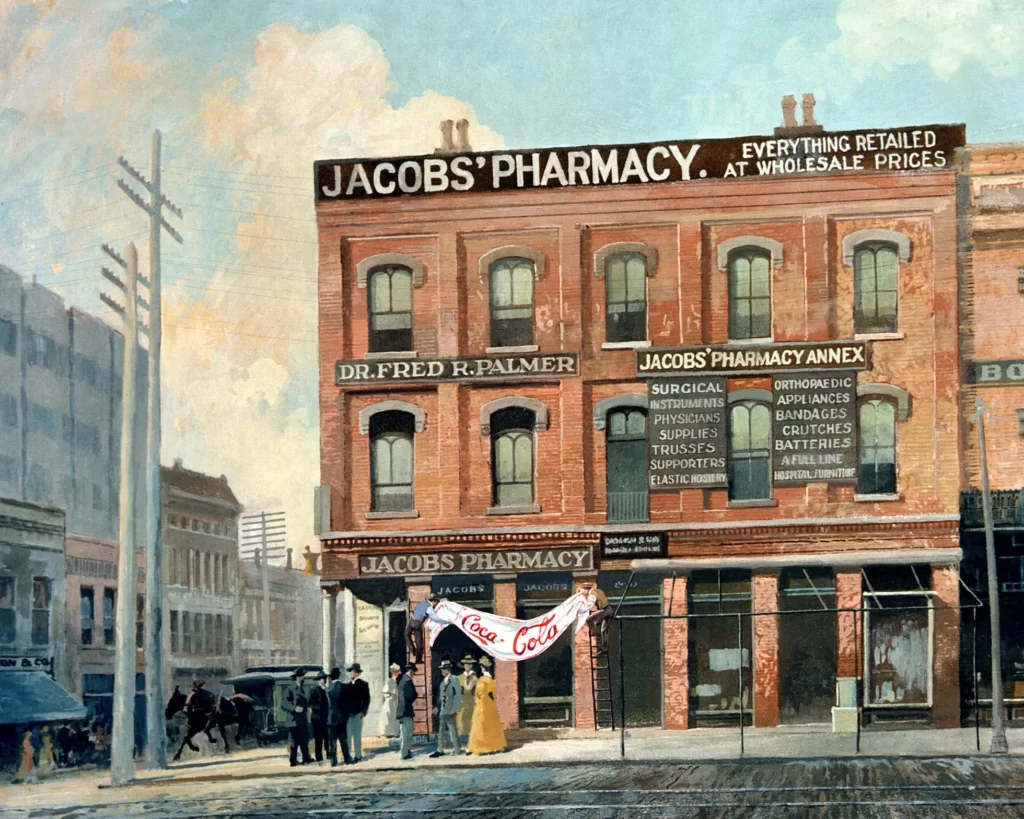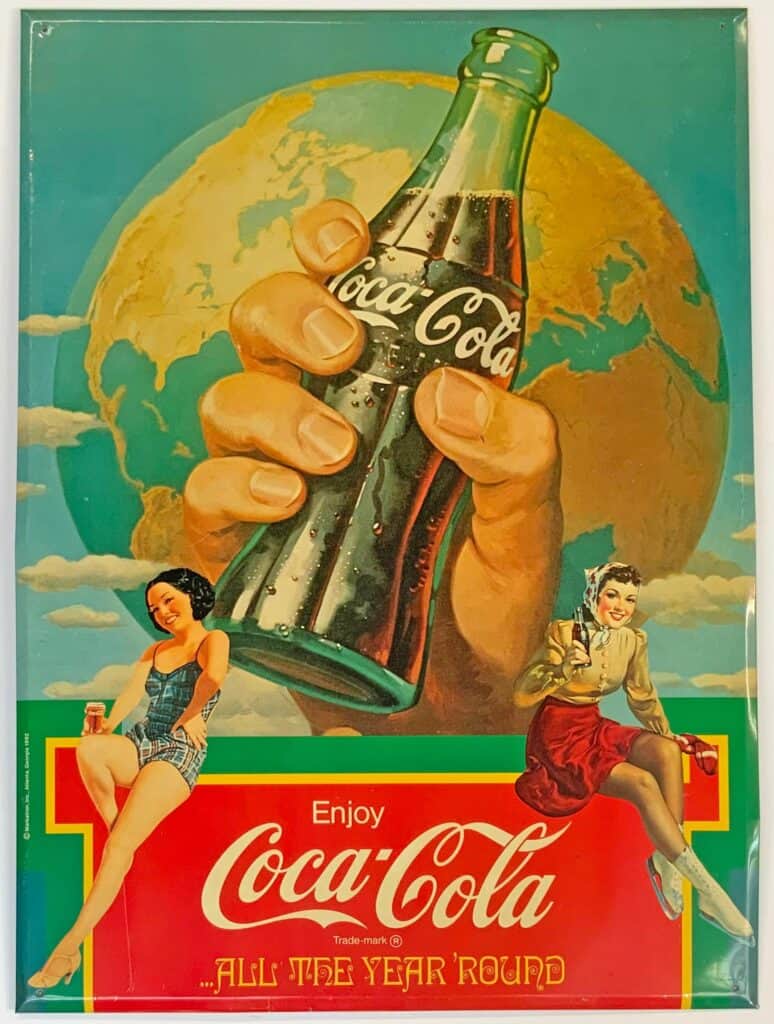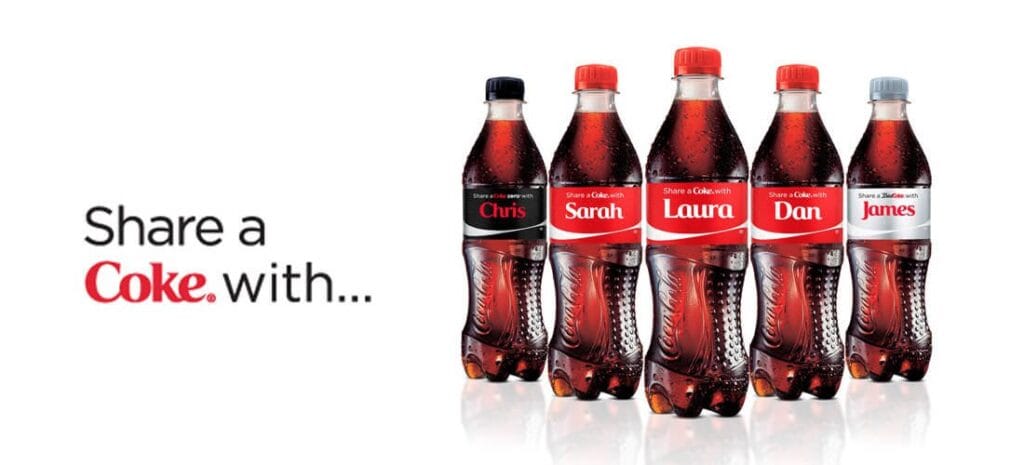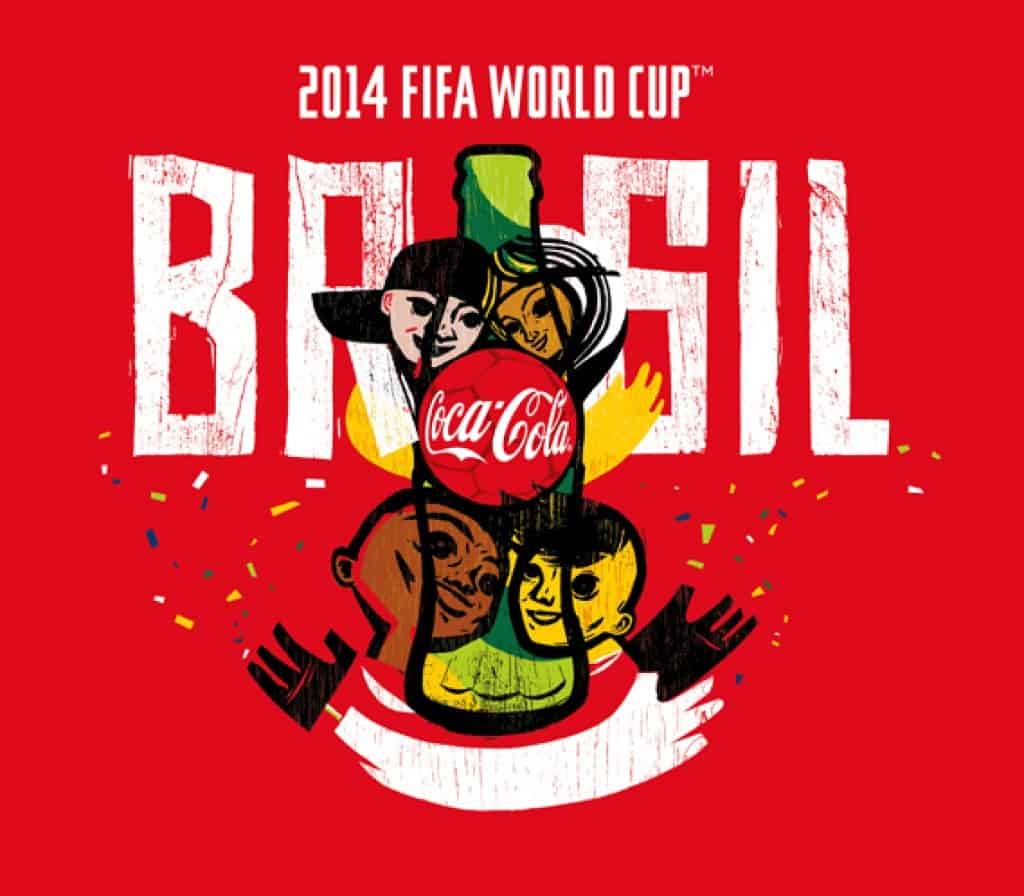Table of contents
Unveiling the Success of Coca-Cola’s Global Marketing Strategy
In the ever-shifting landscape of global commerce, few companies have managed to maintain the enduring appeal and worldwide recognition of Coca-Cola. For over a century, the iconic red can and its refreshing taste have become synonymous with happiness, togetherness, and a shared sense of enjoyment. But behind this global success lies a global marketing strategy that has evolved and adapted to the ever-changing tastes and preferences of consumers worldwide.
Coca-Cola’s journey began in 1886, when Atlanta pharmacist John Pemberton concocted a syrupy concoction that would soon become a beverage sensation. The company’s early marketing efforts focused on local partnerships and community engagement, emphasizing the refreshing nature of its product and its ability to bring people together. As Coca-Cola’s popularity grew, it expanded its reach beyond its American roots, venturing into new markets and adapting its messaging to resonate with diverse cultures and languages.

This ability to adapt has been a hallmark of Coca-Cola’s marketing success. The company has consistently demonstrated a deep understanding of local customs, traditions, and preferences, tailoring its campaigns to connect with consumers on a personal level. From its “Share a Coke” initiative, featuring personalized bottles with local names, to its sponsorship of global events like the Olympic Games, Coca-Cola has masterfully leveraged cultural nuances to build stronger brand relationships.
In our increasingly interconnected world, where consumers are exposed to a vast array of brands and messaging, Coca-Cola’s ability to adapt and resonate across cultures is a testament to its strategic brilliance. The company’s commitment to simplicity, focusing on universal emotions like happiness and refreshment, has allowed its brand to transcend linguistic and cultural barriers. This enduring appeal is a result of Coca-Cola’s understanding that marketing is not just about selling products—it’s about connecting with people on an emotional level and creating shared experiences.
As we delve into the key elements that have contributed to Coca-Cola’s global marketing strategy success, we will uncover the company’s unwavering focus on simplicity, personalization, localization, social media engagement, experience-driven marketing, targeted segmentation, and continuous innovation. These strategies have enabled Coca-Cola to maintain its position as a global icon, a brand that has not only survived but thrived in the ever-changing world of marketing.
Key Elements of Coca-Cola’s Global Marketing Strategy
Simplicity and Timeless Brand Messaging
At the heart of Coca-Cola’s global marketing strategy success lies its unwavering commitment to simplicity and timeless brand messaging. The company has consistently focused on conveying universal emotions like happiness, refreshment, and shared moments through its messaging, rather than relying on complex or culturally specific concepts. This approach has allowed Coca-Cola to transcend language and cultural barriers, connecting with consumers on an emotional level that transcends borders.
One of the most prominent examples of Coca-Cola’s simple and effective messaging is the iconic slogan “Enjoy.” This simple word, with its universally understood connotation of pleasure and happiness, has been the cornerstone of Coca-Cola’s brand identity for over a century. It perfectly encapsulates the feeling of refreshment and shared joy that the brand evokes, making it a powerful tool for connecting with consumers around the world.

Another example of Coca-Cola’s timeless messaging is the slogan “Open Happiness.” This slogan further emphasizes the brand’s association with positive emotions and shared moments of joy. It suggests that simply opening a Coca-Cola can unlock a world of happiness and connection, appealing to the universal desire for positive experiences.
The longevity of these slogans is a testament to Coca-Cola’s ability to tap into universal emotions and translate them into simple, yet powerful messages. These slogans have transcended generations and cultures, remaining relevant and resonant even as consumer preferences and trends evolve.
Coca-Cola’s success in conveying universal emotions through its messaging is further exemplified by its iconic imagery. The red and white color scheme, the familiar contour bottle, and the smiling, happy faces associated with the brand have become instantly recognizable symbols of happiness and refreshment. These visual elements have been carefully crafted to appeal to consumers worldwide, regardless of language or cultural background.
Coca-Cola’s commitment to simplicity and timeless brand messaging has been instrumental in its ability to maintain a consistent global appeal for over a century. By focusing on universal emotions and experiences, the company has created a brand that transcends cultural boundaries and resonates with consumers on a deeply personal level. This approach has ensured Coca-Cola’s enduring success as a global icon, a brand that continues to embody the essence of shared joy and happiness.
Personalization and Localized Positioning
Coca-Cola has masterfully leveraged personalization and localized positioning to establish a deep connection with consumers worldwide. One of the most notable examples of this strategy is the company’s “Share a Coke” campaign, which replaced the traditional Coca-Cola logo on bottles and cans with the most popular names in each region. This personalized approach resonated deeply with consumers, encouraging them to seek out and share bottles with their own names or the names of their loved ones. The campaign’s success can be attributed to its ability to tap into the human desire for connection and shared experiences. It transformed the act of drinking a Coca-Cola into a personalized and meaningful act, fostering a sense of belonging and community.
In addition to personalization, Coca-Cola has also implemented localized positioning strategies to adapt its messaging and marketing efforts to specific cultures and languages. As part of their global marketing strategy, the company has created unique marketing campaigns tailored to local preferences, traditions, and customs. For instance, in India, Coca-Cola has partnered with Bollywood stars to promote its products, while in Brazil, the company has launched customized campaigns during major sporting events like the FIFA World Cup.
This commitment to localization has not only deepened Coca-Cola’s connection with local communities but has also allowed the company to tap into the unique cultural nuances of each market. By understanding and respecting local preferences, Coca-Cola has been able to create marketing campaigns that resonate authentically with consumers, enhancing the brand’s overall appeal.
Coca-Cola’s personalized and localized approach to marketing has been a key factor in its enduring global success. By understanding and adapting to the diverse cultures and preferences of consumers worldwide, the company has created a brand that feels inclusive, relevant, and connected to local communities. This global marketing strategy has not only helped Coca-Cola maintain its position as a global icon but has also solidified its position as a brand that truly understands and celebrates the world’s rich cultural tapestry.
Socialization and Leveraging Social Media Platforms
In the ever-evolving digital landscape, Coca-Cola has seamlessly integrated social media into its marketing strategy, transforming it into a powerful tool for connecting with consumers worldwide. The company has harnessed the power of social media platforms like Facebook, Twitter, Instagram, and YouTube to engage directly with consumers, foster brand conversations, and drive virality. By understanding the unique dynamics of each social media platform, Coca-Cola has created engaging content that resonates with its global audience.
Coca-Cola’s social media presence is characterized by authentic and relatable content that highlights the brand’s core values of happiness, refreshment, and shared experiences. The company encourages user-generated content, allowing consumers to share their own experiences with Coca-Cola, further amplifying the brand’s visibility and engagement.
Social media has also played a pivotal role in Coca-Cola’s global marketing strategy, helping to amplify their reach and impact. The company has leveraged social media to announce new products, launch marketing initiatives, and engage with consumers in real-time. By staying at the forefront of social media trends, Coca-Cola has ensured that its marketing efforts remain relevant and engaging to its global audience.
The company’s social media strategy has been instrumental in fostering a sense of community and belonging among its global consumers. By connecting with consumers on a personal level, Coca-Cola has created a brand that feels inclusive, approachable, and part of everyday life. This connection has been further strengthened through the use of hashtag campaigns, encouraging consumers to share their experiences and connect with each other around the brand.
Coca-Cola’s effective use of social media has transformed the company into a global social media leader, with millions of followers across various platforms. This widespread presence has amplified Coca-Cola’s brand message, making it a household name and a symbol of happiness and shared experiences. Social media has become an indispensable tool for Coca-Cola’s global marketing strategy, allowing the company to connect with consumers, drive engagement, and solidify its position as a beloved and enduring brand.
Experience-Driven Marketing and Brand Association
Coca-Cola has transcended the boundaries of traditional product marketing, opting instead to focus on creating engaging experiences that resonate with consumers on a deeper level. This experiential approach has transformed Coca-Cola from a mere beverage company into a lifestyle brand, closely associated with shared moments of joy, happiness, and connection.
One of Coca-Cola’s most notable examples of experience-driven marketing is its personalized bottle designs. The company has replaced the traditional logo with popular names or phrases, allowing consumers to seek out and share bottles that hold special meaning for them. This personalized approach has created a sense of connection and belonging among consumers, fostering a desire to share their experiences with Coca-Cola on social media.

Coca-Cola has also created unique and memorable experiences through partnerships with global events and cultural celebrations. The company has sponsored major sporting events like the FIFA World Cup and the Olympic Games, creating a sense of shared excitement and anticipation among fans worldwide. Similarly, Coca-Cola has participated in cultural festivals and traditions, aligning the brand with shared experiences and fostering a sense of cultural appreciation.
These experiential marketing efforts have solidified Coca-Cola’s position as a lifestyle brand, transcending the mere consumption of a beverage. The company has become synonymous with shared moments of joy, friendship, and celebration, capturing the essence of human connection and happiness. Consumers now associate Coca-Cola with more than just a refreshing drink; they associate it with creating and sharing positive experiences that bring people together.
Coca-Cola’s commitment to experience-driven marketing has not only enhanced its brand image but has also deepened its connection with consumers worldwide. By creating memorable experiences that resonate with consumers on an emotional level, Coca-Cola has established itself as a brand that goes beyond just selling products—it’s about creating experiences that connect people and make them feel happy and fulfilled.
Targeted Marketing and Segmentation Strategies
Coca-Cola’s global marketing strategy success is deeply rooted in its ability to target specific consumer segments and tailor its marketing strategies accordingly. The company recognizes that consumers have diverse needs, preferences, and tastes, and it has developed a comprehensive segmentation strategy to address these variations effectively.
Coca-Cola’s segmentation strategy encompasses a wide range of factors, including age, income level, geographical location, and lifestyle preferences. The company has tailored its marketing messages, product offerings, and packaging to resonate with each segment, ensuring that its brand remains relevant and appealing to diverse consumer groups.
For instance, Coca-Cola has developed a range of products tailored to specific age groups, such as Diet Coke for health-conscious consumers and Minute Maid juices for families with children. Similarly, the company has adapted its marketing campaigns to appeal to different income levels, using different media channels and messaging strategies to reach consumers across various socioeconomic strata.
Geographical location also plays a significant role in Coca-Cola’s segmentation strategy. The company has developed localized marketing campaigns that resonate with the unique cultural and social norms of different regions. For example, Coca-Cola has partnered with local celebrities and influencers in India to promote its products, while in Brazil, the company has launched campaigns during major sporting events like the FIFA World Cup.

Coca-Cola’s commitment to targeted marketing is based on the fundamental understanding that consumers are not a monolithic group with uniform tastes and preferences. By segmenting the market and tailoring its offerings to specific groups, Coca-Cola has been able to connect with consumers on a deeper level, enhancing brand loyalty and driving sales.
The company’s segmentation strategy is not static but rather evolves as market dynamics change and consumer preferences shift. Coca-Cola continuously monitors consumer trends and adapts its segmentation strategies to ensure that its marketing efforts remain relevant and effective in reaching diverse consumer segments across the globe.
Continuous Innovation and Adaptability
Coca-Cola’s enduring success as a global icon is inextricably linked to its unwavering commitment to innovation and adaptability in the ever-evolving marketing landscape. The company has demonstrated a remarkable ability to embrace change, experiment with new trends, and leverage emerging technologies to stay ahead of the curve and maintain its competitive edge.
One of the most notable examples of Coca-Cola’s innovative spirit is its early adoption of social media platforms. The company recognized the potential of these platforms to connect with consumers on a personal level and build brand communities, and it has consistently integrated social media into its marketing strategies.
Coca-Cola has also been at the forefront of adopting new marketing technologies, such as augmented reality (AR) and virtual reality (VR). The company has used these technologies to create immersive experiences that engage consumers and promote its brand in innovative ways. For instance, Coca-Cola has developed AR filters for social media platforms that allow users to virtually personalize their Coca-Cola bottles.
In addition to adopting new technologies, Coca-Cola has also been a pioneer in experimenting with new marketing formats and approaches. The company has launched interactive marketing campaigns, virtual reality experiences, and even personalized television commercials. These innovative efforts have allowed Coca-Cola to reach new audiences and engage with consumers in ways that were previously unimaginable.
Coca-Cola’s commitment to innovation and adaptability has been crucial to its success in a rapidly changing global market. By embracing new trends and technologies, the company has been able to stay relevant, connect with consumers, and drive sales. This ability to innovate has been a hallmark of Coca-Cola’s global marketing strategy for over a century, and it will continue to be essential for the company’s long-term success in the ever-evolving world of marketing.
Conclusion
Coca-Cola’s global marketing strategy success is a testament to its commitment to simplicity, personalization, localization, socialization, experience-driven marketing, targeted segmentation, and continuous innovation. Through these strategies, Coca-Cola has consistently connected with consumers on an emotional level, transcending language barriers and cultural nuances to become a universal symbol of happiness and shared experiences.
In today’s interconnected world, businesses aspiring to achieve global recognition must emulate Coca-Cola’s approach to marketing. Accelingo’s professional translation services can be invaluable tools in this endeavor, ensuring that marketing messages and brand communications resonate with diverse audiences across the globe.
Accelingo’s experienced translators and localization specialists possess in-depth knowledge of cultural nuances and linguistic subtleties, enabling businesses to tailor their marketing campaigns to specific regions and target demographics. By seamlessly translating content into various languages and adapting it to local customs, Accelingo bridges the gap between brands and consumers, fostering deeper connections and driving global success.
As businesses venture into the international arena, Accelingo stands as a trusted partner, providing the linguistic expertise and cultural sensitivity necessary to navigate the diverse markets of the world. With Accelingo’s support, businesses can emulate Coca-Cola’s global marketing strategy success, expanding their reach and connecting with audiences on a truly global scale.




